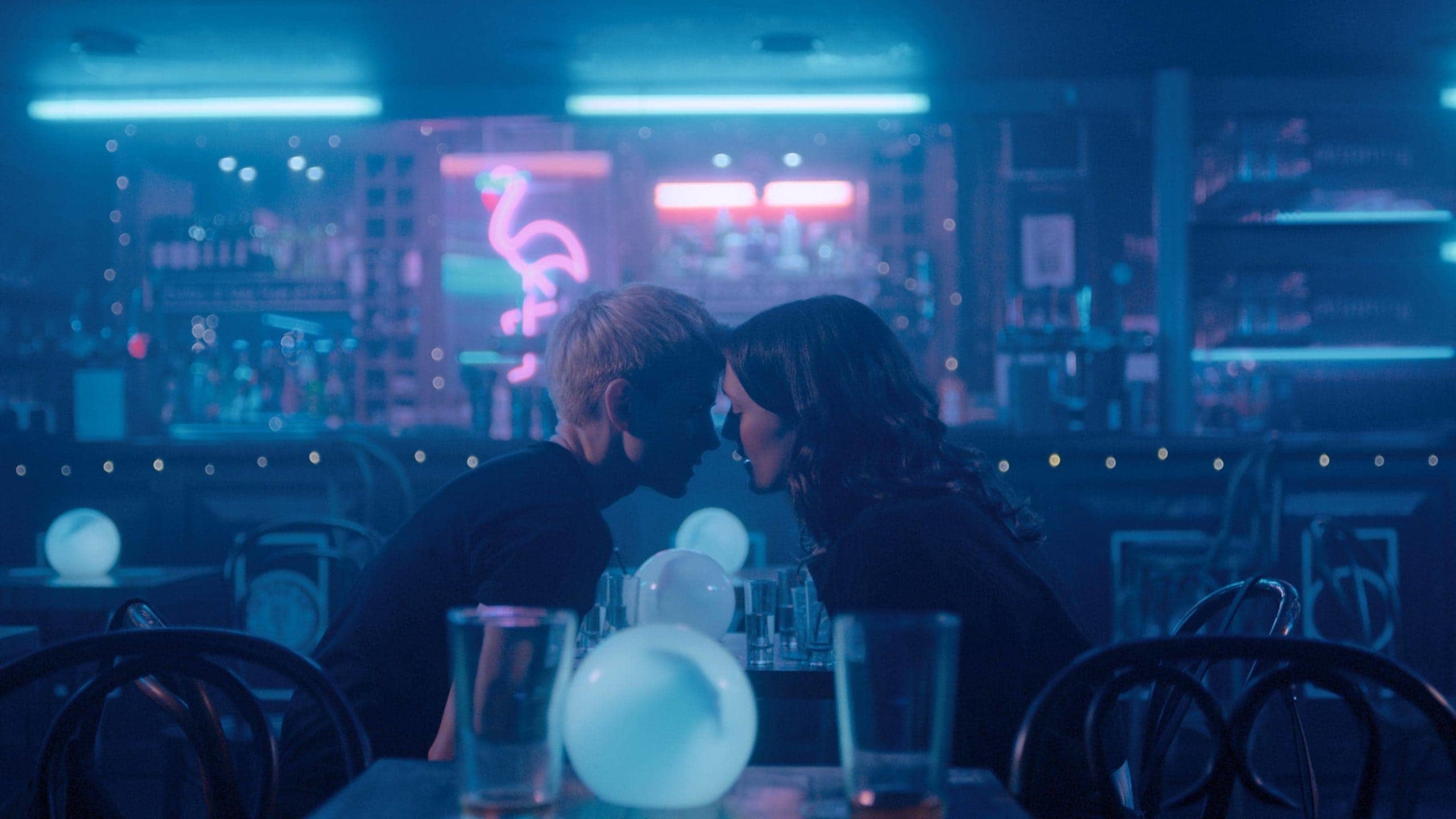

A large black, backpack. Rolled up T-shirt sleeves. We’re tracking Mae Martin (starring as a version of herself) as she walks the streets of London for a stand-up gig.
‘Hi guys, I’m Mae,’ she says on-stage. ‘Did everyone have a good childhood?’
Funny, but very telling. Mae and George are soon inebriated by the magic of early romance
There’s a girl at the gig who Mae has her eye on — George (Charlotte Ritchie), as we soon discover. She’s like ‘a dangerous Mary Poppins,’ Mae says to her friend, ‘and I’m, like, Bart Simpson.’ Funny, but very telling. Mae and George are soon inebriated by the magic of early romance.
Within the show’s first ten minutes, they meet, kiss, have sex for the first time, and move in with one another in a montage set to Fleet Foxes — Feel Good paying off its title’s promise. (And, without sounding flippant, we could all use a little Feel Good in times like these.)

The Mary Poppins line reveals a flaw in Mae’s character. In her eyes, George is a nurturing figure, larger than life, who can solve her internal struggles, pulling the solutions from a hat. But potentially, she also has the power to fly off on an umbrella. To fall in love is to be vulnerable, precarious.
The co-dependency in their relationship is initially played for laughs. While George is sleeping, Mae paints a portrait of her as a ‘moving in’ gift. She’s bouncy as a puppy, presenting the painting, along with coffee and Bombay Mix, when George wakes up. ‘What do you want to do today?’ she asks, ‘Go to Ikea? It’s like a very big day for us.’
Excitement masks anxiety, and irony conceals deep-seated flaws. Mae can’t sleep at night, she lies still with tentatively crossed arms, as if in a sarcophagus
Mae’s manic intensity makes you want to keep an eye on her. Humour is one of her defence mechanisms, and her acerbic one liners seem to release her internal pressure valve, just as they release the tension for us.
Excitement masks anxiety, and irony conceals deep-seated flaws. Mae can’t sleep at night, she lies still with tentatively crossed arms, as if in a sarcophagus. In the morning, her emotionally aloof mother (played by Lisa Kudrow) lets slip that Mae is recovering from a cocaine addiction, which saw her become homeless and jailed during her teenage years.

All is fine now, Mae insists, but she caves to her mother and George’s pleas for her to seek out a new Narcotics Anonymous meeting, just in case — you’ll be pleased to know, it’s filled with troubled and hilarious oddballs.
One of the questions that Mae Martin’s semi-autobiographical queer rom-com asks is: is love another kind of drug? Are flawed people worthy of love? is another. Note the high-pitched tinnitus sound during Mae and George’s first kiss, and how it reoccurs at other moments when Mae is tempted to relapse.
Mae Martin’s semi-autobiographical queer rom-com asks is: is love another kind of drug? Are flawed people worthy of love?
The rate at which I consumed the six half-hour episodes is testament to how not only substances can be addictive. Martin’s writing packs in so much here, by stepping quickly and lightly, skimming along trivialities — ‘Bart Simpson’, ‘Bombay Mix’, an ‘I heart Guernsey mug’ — you won’t feel the weight until it’s been lifted.
So deftly is the line between lightness and depth tread that Martin has Lisa Kudrow offer this insight from the whimsical seat of a Ghost Train: ‘Mae doesn’t love people. She loves the idea of love itself. It doesn’t matter who you are, George, you’re just a mirror she’s holding up to herself.’

For a series titled Feel Good, you’d expect its ending to sail towards the sunset. Martin delivers, and with all the rockiness required to make such an end satisfying. The real ending, though, might be the fact of the series’ making.
Stepping back from the kind of solipsism and narcissism described by Mae’s mother in the lines above, the real Mae Martin has made a taut, light and humane self-portrait that holds the mirror up for all of us. Love and comedy can be addictions worth nurturing. Our flaws don’t have to be fatal.




